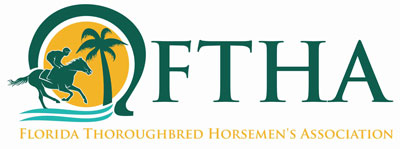
President Bill White and Executive Director Glen Berman attended a dinner hosted by FHBPA’s new Government Relations firm, Corcoran & Johnston on November 28, 2016. The event was held at the Tampa Bay Buccaneers Training Facility and Florida Governor Rick Scott was the guest of honor.
Corcoran & Johnston is replacing longtime FHBPA lobbyist Herb Sheheane who announced that he was retiring at the end of this year.
The FHBPA leaders had the opportunity to spend some time with the Governor. White stated, “It was one of the first steps with our new representation in a process of increasing the FHBPA’s visibility and racing industry stature on behalf of its membership with Florida State Government.”
“We are confident that the concerns of the FHBPA regarding our No De-Coupling campaign will be heard by the administration,” added White.
While decoupling as part of the Seminole Gaming Compact legislation was declared “dead” at the end of the 2016 Florida Legislative Session, the FHBPA fully expects it to be brought to the table once again in 2017.
As a reminder to our readers, decoupling means that pari-mutuel facilities in Florida, including race tracks, would have the option of dropping all or most of their live racing while still keeping (or expanding) their slots and poker room facilities and seeking authorization for future gaming products from the Florida Legislature.
The mandate of live racing opportunities was the cornerstone of granting tracks the opportunity to open gaming centers connected to their pari-mutuel facilities in the first place—to grow and protect live pari-mutuel racing and its enormous economic impact on the state’s racing and breeding infrastructure which employs more than 12,000 statewide.
954.457.3516 | info@floridahorsemen.org



